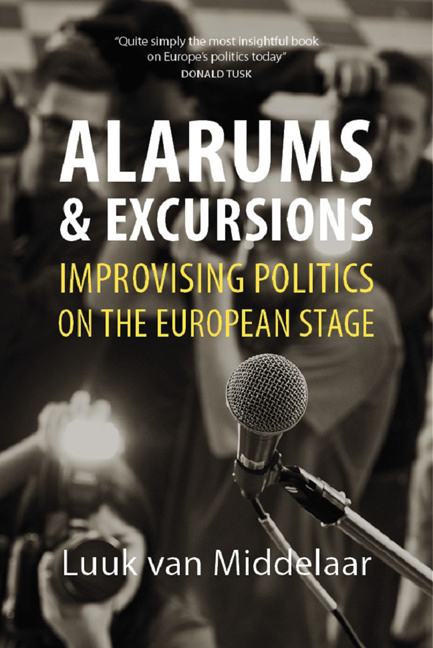Entr’acte: acting in time
Published online by Cambridge University Press: 16 August 2023
Summary
Since by his own act the innovator inhabits a delegitimized context, where fortuna rules and human behavior is not to be relied on, he is obliged to take the short view and continue to act – and in that sense, to innovate. In a very precise sense, then, action is virtù; when the world is unstabilized and the unexpected a constant threat, to act – to do things not contained within the structures of legitimacy – was to impose form upon fortuna.
J. G. A. PocockDoing nothing was not an option. Wars and calamities were ravaging the Italian peninsula. The invasion by the French king in 1494 had upset the balance of power between the Italian states. Niccolò Machiavelli, a senior civil servant in the Florentine Republic in the Renaissance years 1498–1512, writes of “the great changes in affairs which have been seen, and may still be seen, every day, beyond all human conjecture”. When new disasters are hitting your country daily, fate has to be kept in check. For that reason, in The Prince and Discourses on Livy Machiavelli investigated the most sensible courses of political action in any number of historical and contemporary situations: dictatorship and republic, war and peace, foundation and legislation. How to get a grip on historical reality?
The mere posing of the question signified an intellectual revolution, a break with the old world, a liberation of political time from eschatology. Medieval Christianity attributed no significance to earthly intercourse between people and rulers. What counted was the salvation of the soul by God. History with its chance events was subordinated to the divine plan of salvation. Although God’s plan, including the crucifixion of His son, was carried out in worldly time, God Himself stood outside it. In other words, “Secular time […] was the theater of redemption, but not its dimension”. Prophets who saw the hand of God in natural disasters or political calamities – such as the sack of Rome in 410 – were regarded as heretics. The most anyone could say was that divine providence bombarded human beings with disastrous happenings to test their faith. Those unconvinced by that saw only fate, the capricious Wheel of Fortune.
- Type
- Chapter
- Information
- Alarums and ExcursionsImprovising Politics on the European Stage, pp. 143 - 148Publisher: Agenda PublishingPrint publication year: 2019

